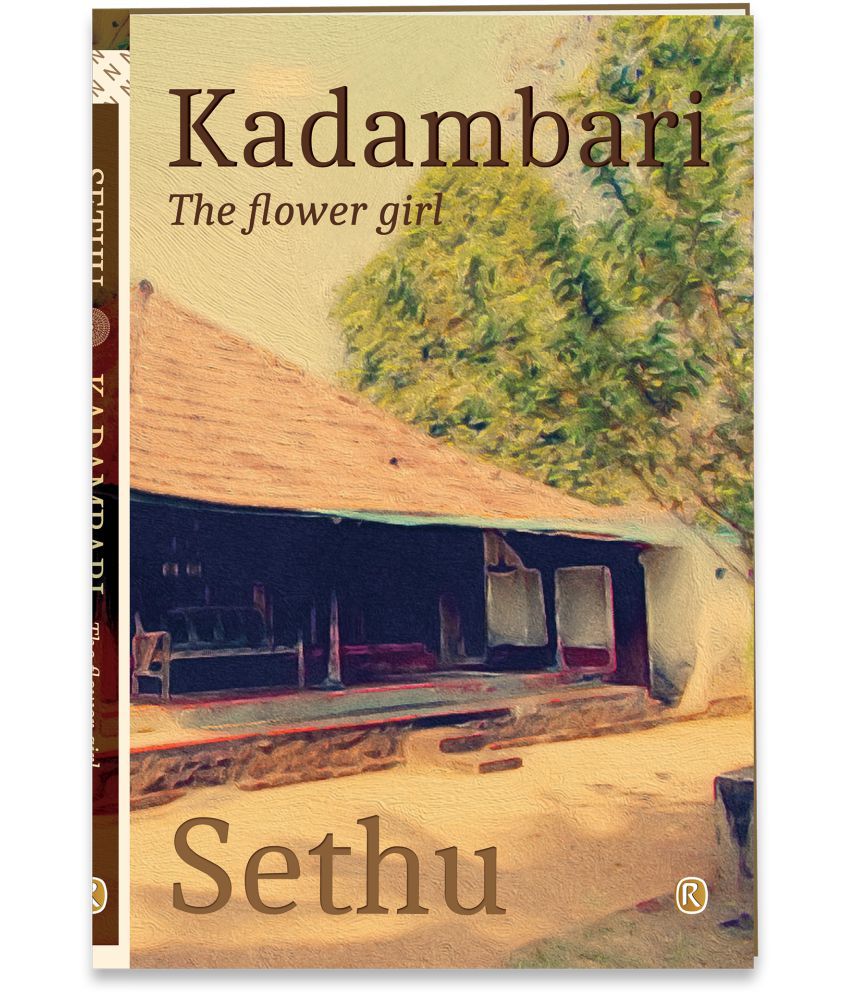Kadambari, the Flower Girl is set in the temple town of Devagiri: there are flower shops, as flowers are used copiously for rituals in the temple by devotees and for other purposes. Shankararaman is the most renowned flower-seller employing five differently abled girls (named after flowers) for processing flowers for varied uses. He and his wife Gomathy are not blessed with progeny. They attend a temple festival and, while returning, a four-year-old abandoned girl child in rags clings to Shankararaman. A devout man, he considers the child as a gift of the Goddess and takes the girl home. Initially Gomathy detests the child but later in a poignant moment her attitude softens and she takes her as her own daughter. The couple showers the best of care and love for the adopted daughter; they do face social stigma but ignore it. Kadambari is intelligent and independent and grows into a beautiful girl and her parents feel blessed and want her to become a doctor. Growing up and blossoming like a flower brings troubles, as she is not able to cope up with the ogling eyes of males, be it male school teachers or dance and music instructors. Prowling gazes make her panicky. She loses interest in academics and is unable to express her inner conflicts to anyone. Feeling devastated and insecure after a scary incident, she flees from home that nurtured her. Her existential dilemma is profound in losing the affinity to the home...
A. SETHUMADHAVAN (Sethu), born in a small village in Kerala in the year 1942, has been writing fiction in Malayalam for the past five decades. A banker by profession and a writer by passion, he has 20 titles each of novels and collections of stories to his credit. Widely travelled abroad and having worked in different parts of India, his writings have a global flavour and a pan-Indian canvas. Many of his works have been translated into other languages. His much acclaimed novel Pandavapuram has been translated into 10 languages including English, German, French and Turkish. Apart from The Cuckoo’s Nest in original, his works translated into English include the novels Pandavapuram, The Saga of Muziris, Aliyah, The Wind from the Hills, Once Upon a Time, and short stories Jalasamadhi and other stories, A Guest for Arundhati and During the Journey and other stories. Pandavapuram has been filmed in Malayalam and Bengali, the latter titled Nirakar Chaaya, which won international recognition. Four of his works have been filmed, the latest being Jalasamadhi. A winner of all the major awards such as the Sahitya Akademi award and the Kerala Sahitya Akademi award (twice), Sethu was also the Chairman of the National Book Trust, New Delhi, for three years. Joining the State Bank of India as a Probationary Officer, he retired as the
Chairman and CEO of the South Indian Bank.

